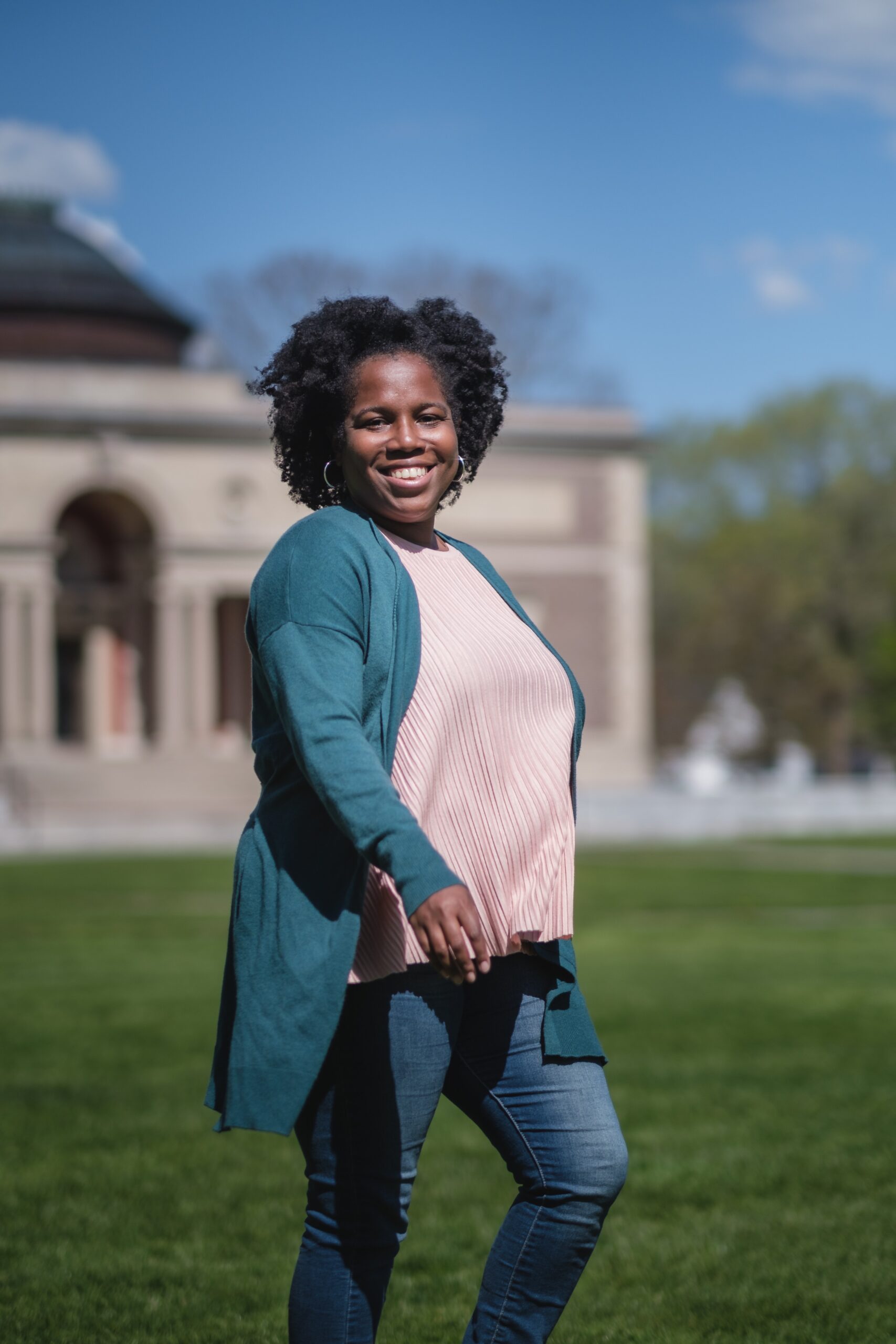Professor of Government Chryl Laird to leave Bowdoin for University of Maryland
May 14, 2021
 Cheng Xing
Cheng XingMarvin H. Green, Jr. Assistant Professor of Government Chryl Laird will be leaving Bowdoin at the end of the year for a new role at the University of Maryland (UMD), Laird announced on Twitter April 28. Laird has attracted national media attention for her 2020 book “Steadfast Democrats: How Social Forces Shape Black Political Behavior,” coauthored with Ismail White, professor of politics and public affairs at Princeton University, and has been featured as a frequent guest on various media outlets—including CNN and MSNBC—both during and after the 2020 election cycle.
Laird, who attended UMD as an undergraduate and still has family in the area, was approached by the university earlier this year. She explained that she took into consideration a number of factors, including academic opportunities and opportunities for community, in her decision.
“The government department here [at Bowdoin] has been fantastic and incredibly supportive of my trajectory … but Maine is far from my family and far from my home, and there are also some unique factors of being in Maine that, after you’ve been here for a while, you start to think about,” Laird said in a Zoom interview with the Orient. “It is very much a community that I had not had much experience with … particularly for me, the racial homogeneity of the space comes into consideration.”
In the past year, and alongside the 2020 election and the Black Lives Matter movement, Laird’s focus on race and ethnic politics has proven particularly salient, both nationally and within the College community. She anticipates that upon returning to College Park, Maryland, which is right outside Washington, D.C., this unique skill set is likely to offer her new professional opportunities for collaboration and research.
“I can imagine that I would be doing a number of things [in D.C.],” Laird said. “It’s a balance when you are somebody who does work in certain areas that are sought-after or in high demand due to the political moment. Right now, because we’re in the midst of Black Lives Matter, you have to not only find the places and spaces and opportunities that come your way that you think are relevant to your work, but you also don’t want to overwhelm yourself with too much demand.”
“I’m excited at what those things could look like and the opportunities just being a bit easier when you’re located so in proximity to everything,” Laird added. “So, it’s not as challenging to do those kinds of collaborations.”
Thomas Brackett Reed Professor of Government and Chair of the Government and Legal Studies Department Andrew Rudalevige noted that high demand for Laird’s research—in terms of media attention and opportunities for professional collaboration—is a factor in the academic market.
“We want to hire people who are so good that other people steal them,” Rudalevige said in an interview with the Orient. “That’s part of the hazard of the industry, and it is an industry [itself] to some degree. We can try to think of it as being pure and immune from that kind of competitive rivalry, but the fact is that good scholars are always going to be in demand.”
Rudalevige said the department hopes to expedite the process for hiring a replacement for Laird so that gaps in the curriculum left by her departure will be filled quickly.
“Everybody who teaches in American politics has to grapple with the question of race, so it’s not a question where we’re losing that from the curriculum,” Rudalevige said. “But given the salience of race and ethnic politics to broader questions of American civic life right now, we obviously see [Laird’s departure] as a hole that we need to fill.”
Rudalevige also emphasized that the process of replacing Laird will be accompanied by a broader conversation about what the department should look like moving forward.
“Over time, we want to have a really careful eye on diversifying the government department,” Rudalevige said. “A priority is making sure that we are teaching a broad curriculum and that we are reflecting what is an increasingly diverse student body at Bowdoin and in the major. We want to make sure that we are representing that in all kinds of ways.”
For Laird, the community at Bowdoin was a new experience for her—coming from big research universities like UMD—but it has been a memorable one.
“My time here [at] Bowdoin has been one that I will definitely think of fondly,” Laird said. “I have enjoyed all of the students and people that I’ve interacted with here … I’m always thoroughly impressed by what is possible from the students here, so I will miss that, and I will miss a lot of those opportunities to interact with students in the way that we do it here at Bowdoin, because it is special.”

Comments
Before submitting a comment, please review our comment policy. Some key points from the policy: